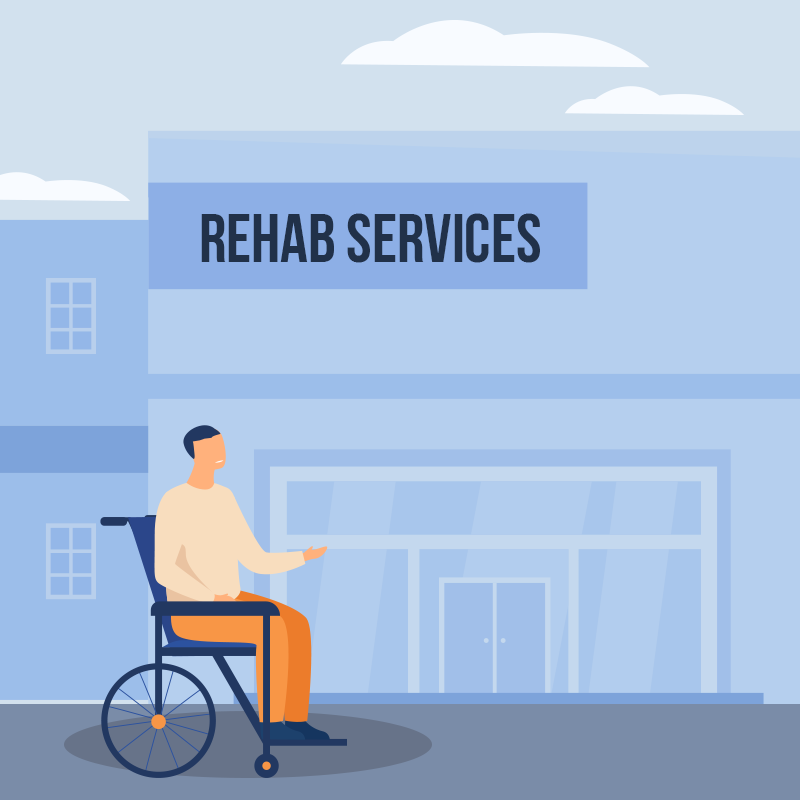How Are Future Medical Expenses Calculated in a Slip and Fall Case?

If you have sustained a serious slip and fall injury and need long-term medical care, you may have asked yourself, “how are future medical expenses calculated in a slip and fall case?” Your lawyer reviews factors like your age, life expectancy, and injury severity and uses the total lifestyle approach or additional expenses method to calculate your future medical bills. Accurately determining your likely future medical expenses with the help of an attorney will aid in ensuring you do not have to pay for these costs out of your own pocket.

Table of Contents
How Slip and Fall Settlements Are Calculated
Slip and fall settlement calculations occur through a series of negotiations between the injured party and the negligent party responsible for the accident. The parties discuss what each is willing to settle for as they try to resolve the case.
Before you and your attorney start negotiating with the negligent party, the attorney will have come up with a number that he or she considers a fair settlement amount for your injury. That will require the attorney to do an independent investigation to establish all the losses you suffered.
Medical Expenses
Your past and future medical expenses significantly affect the amount you receive in your slip and fall claim. The nature of your injuries determines your medical bills. For instance, one study estimated a hip fracture’s lifetime cost to be $81,300. Severe injuries usually lead to higher medical bills. For example, a spinal cord injury will require more ongoing care than an ankle fracture.
Pain and Suffering
Pain and suffering also add to your claim’s value. Your medical bills are usually the starting point for calculating your pain and suffering. Depending on the injuries you suffered, the lawyers or insurance adjusters dealing with your case will use a multiplier to calculate pain and suffering. For instance, a severe injury may get 5 as the multiplier, meaning your pain suffering will be valued at five times the amount of your medical bills. A less serious injury, however, may receive 1.5 as the multiplier.
Lost Wages
A slip and fall injury may make you miss work. If you slip on a wet floor – one of the most common causes of slip and fall accidents – and break your ankle, yet your job involves standing all day, you will have to take some time from work to recover. You should receive compensation for the wages you lost. You will need to verify how much you earn and the amount of time you missed because of the injury.
A severe slip and fall injury may prevent you from returning to your pre-accident work. As a result, you could include the value of your lost earning potential in the damages you are pursuing in your slip and fall case.
What Are Future Medical Expenses?

Future medical expenses may be part of the damages you recover in your slip and fall injury claim. These are expenses that you will incur due to the treatment of your slip and fall injuries after your case is resolved. If your slip and fall injuries resulted from someone else’s negligence, you might be eligible to receive compensation for all your future medical costs.
Not all victims of slip and fall accidents need compensation for future medical care. Some victims sustain less severe injuries, recover relatively quickly, and regain full functioning before their cases are resolved. In such cases, it’s often unnecessary to recover future medical expenses.
Certain severe injuries sustained from a slip and fall accident may need ongoing medical care even after victims reach maximum medical improvement (MMI). MMI is the stage where the doctor determines your injury is unlikely to heal further. At this point, you may need additional treatment to make the pain and other symptoms more manageable. Compensation for future medical care helps victims cover these ongoing treatment costs.
Victims who sustain a spinal cord injury, paralysis, or brain injury after a slip and fall accident may require compensation for future medical expenditures like:
- Assistive medical devices
- Hiring an in-home caregiver
- Hospital stays
- Rehabilitation therapy
- Follow-up appointments with doctors
- Home or vehicle modifications
Other future medical expenses that you may need after suffering a slip and fall injury include diagnostic testing, surgeries, nursing home expenses, transportation to and from treatment, mental health services, and continued use of medication.
How a Lawyer Determines Future Medical Bills in a Slip and Fall Case
It’s critical to ensure that your slip and fall settlement accurately reflects your future medical treatment’s projected costs and other losses. Once you accept a settlement, the party liable for your accident won’t be obligated to provide additional compensation later if the settlement runs out before you fully cover all medical expenses related to your injury.
If the party liable for your injury has insurance, you shouldn’t accept a quick settlement offer from the insurance company without talking to an attorney. Insurance companies may take advantage of injury victims not knowing their right to future medical expenses and how to determine the compensation to which they should be entitled accurately. As a result, they undervalue claims and only cover current costs, avoiding providing compensation for future medical bills.
Determining future medical costs involves placing a value on treatments that haven’t occurred yet. Therefore, it’s difficult for you to determine their value yourself. A skilled lawyer will know how to calculate the value correctly.
Slip and fall attorneys usually wait until victims reach MMI to evaluate their future treatment needs. When you reach MMI but still need ongoing medical care, it will be easier for your attorney to accurately determine your future medical costs. The attorney will consult your doctor and other experts like medical specialists and physical therapists to help establish the treatments needed and their costs.
Factors Considered When Determining Future Medical Bills
When determining the compensation that will cover your ongoing medical bills, your attorney and the experts he or she brings in will review several factors. They will consider how your health was before the slip and fall accident, the severity of the injuries you sustained, and how you have been responding to treatment.
Your attorney and his or her team will also assess the additional medical care you may need in the future in relation to your health, age, and life expectancy and the typical costs of the treatments. Inflation may lead to your medical treatment costs increase over time. As a result, inflation rates will also be a factor to consider.
Other factors that your attorney will take into consideration include the following:
- Treatment goals
- How long your problems could last because of your injury
- Alternative treatment options available
- Effectiveness of potential treatments
Approaches to Calculating the Value of Future Medical Bills
The main approaches that an attorney may use to calculate the value of your future medical expenses are the total lifestyle approach and the additional expenses approach.
Total Lifestyle Approach
Slip and fall attorneys typically use this approach to determine future medical needs if a victim sustains severe life-altering injuries, such as spinal cord damage or a traumatic brain injury. Injuries like these may make you unable to continue living an independent lifestyle.
The total lifestyle approach considers all the costs related to maintaining a quality of life close to what you had before the accident. Your attorney may take this approach because of a strong likelihood of you never reaching the same level of functioning as before the slip and fall accident, even after attaining MMI.
Your slip and fall attorney will consult your healthcare provider and create a comprehensive life care plan. The plan will specify the medical costs, daily cost of living, and other expenses you will require to optimize your lifestyle, considering your injury and life expectancy.
Additional Expense Method
Attorneys use this approach to calculate future medical expenses if you sustain injuries that will require medical care over a certain period in the future but won’t affect you for your whole life. You will incur medical expenses temporarily, but eventually, regain your pre-accident lifestyle. The method will involve your lawyer determining every additional expenditure you may incur, such as the cost of surgeries, medical equipment, physical therapy, and transportation that your injury may require over a particular period. He or she will use them to calculate the total value of your future medical expenses.
How to Prove Future Medical Costs
For you to recover compensation for future medical expenses, you will need to prove there is a reasonable likelihood of incurring the costs. Proving past and current medical costs is relatively straightforward because you can easily provide billing statements and invoices. Proving future medical costs in settlement negotiations or at trial is more challenging. As a result, you’ll benefit significantly if you have a qualified lawyer who can correctly calculate this value in your slip-and-fall claim.
Proving future medical expenses requires expert testimony. Your attorney will help you by leveraging his or her relationships with medical and financial experts. The attorney may, for example, bring in a medical specialist to testify about the causes, complications, and long-term consequences of your injury, the treatments that may be necessary to aid your recovery, and the expected level of improvement.
Your treating doctor may also provide valuable insight into the stage you are in your recovery, the treatments you have already received, and the kind of ongoing care you will need in the future. Your attorney may also engage economic experts and life care planners to testify on the projected costs of your future medical care.
Believing common myths about accident cases, such as lawyers being expensive, may make you choose to handle the calculation of special damages like future medical expenses on your own. That will likely lead to you failing to understand how does a lawyer determine future medical bills in a slip and fall case, potentially making you unable to afford all the medical treatment you need. Having your claim for future medical expenses accurately valued with the assistance of an experienced attorney will help you get all the ongoing medical care you need and live more comfortably.



